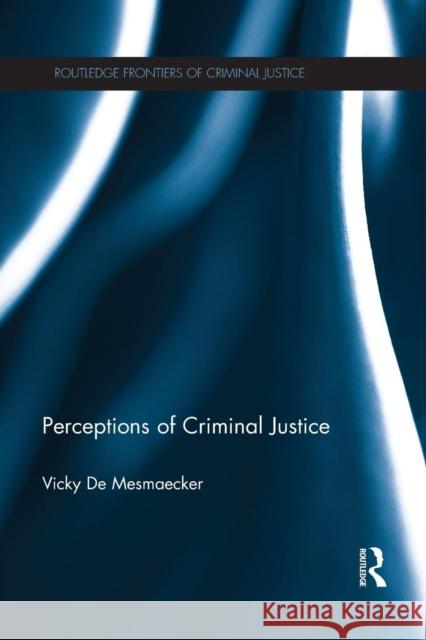Perceptions of Criminal Justice » książka
Perceptions of Criminal Justice
ISBN-13: 9781138961289 / Angielski / Miękka / 2015 / 170 str.
Perceptions of Criminal Justice
ISBN-13: 9781138961289 / Angielski / Miękka / 2015 / 170 str.
(netto: 148,44 VAT: 5%)
Najniższa cena z 30 dni: 151,07 zł
ok. 16-18 dni roboczych.
Darmowa dostawa!
In recent decades, research into the legitimacy of criminal justice has convincingly demonstrated the importance of procedural justice to citizens sense of trust and confidence in legal authorities and their resulting willingness to conform to the law and cooperate with the legal authorities. Reversing the age-old question why do people break the law?, theories of procedural justice have provided insight into the factors that encourage people to abide by the law, suggesting that experiences of procedural fairness are crucial to achieving compliance with the law and to enhancing the legitimacy of criminal justice. While these studies are important in showing that legal authorities need to pay attention to the fairness judgements of the people involved in legal procedures, the focus on showing the importance of procedural justice has had the ironic consequence of distracting researchers from studying the equally important question of what fairness means to the people involved in legal proceedings. In one of the first studies on procedural justice to use a qualitative research design, the author provides the reader with detailed and insightful descriptions of the elements that determine how victims and defendants assess the fairness of their contact with the police and the courts. Focusing on both the pre-trial and the post-trial phases, this book will be of interest to academics and students engaged in the study of the psychology of law, procedural justice and the legitimacy of criminal justice."











